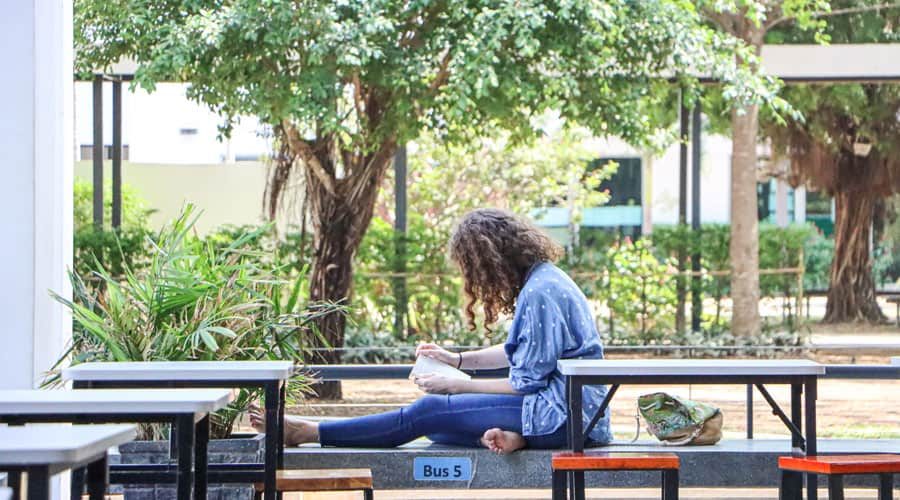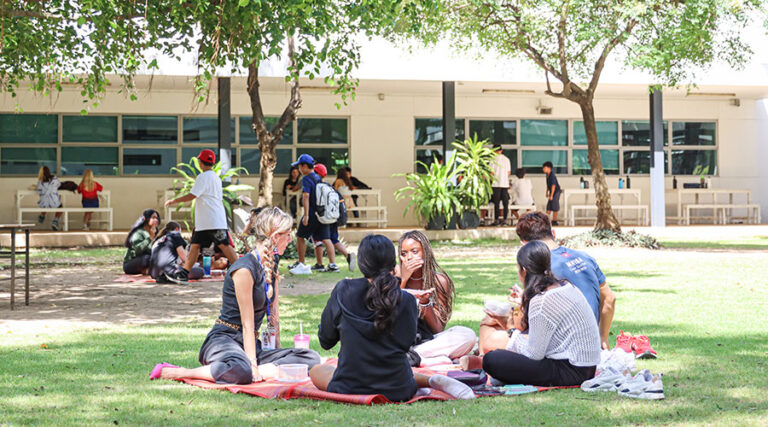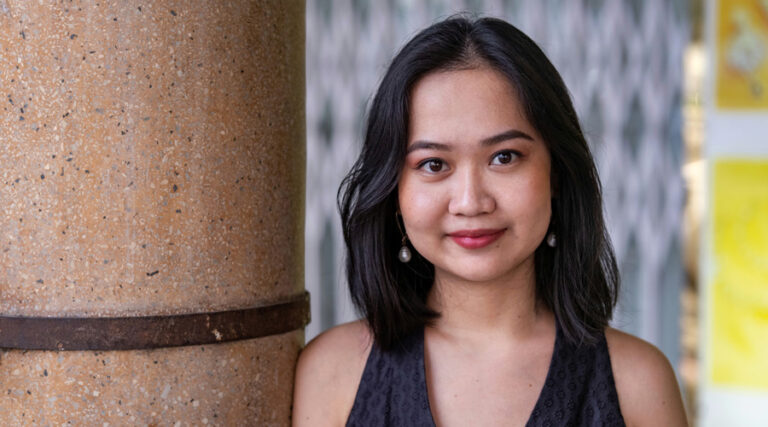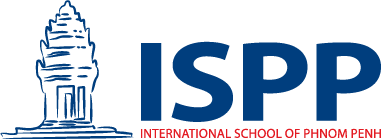Allowing time to care for ourselves is not selfish; it’s necessary. There is still a lot to do, but we are slowly starting to understand it and adding it to our busy lives.
What does wellness mean to you? Have you ever tried to define wellness?
If you google it as I did, this is the first definition you get:
The state of being in good health, especially as an actively pursued goal.
“Measures of a patient’s progress toward wellness.”
Wellness is the act of practising healthy habits on a daily basis to attain better physical and mental health outcomes so that instead of just surviving, you’re thriving. To understand the significance of wellness, it’s important to understand how it’s linked to health. According to the World Health Organization (WHO), health is defined as being “a state of complete physical, mental and social well-being and not merely the absence of disease or infirmity.”
We live in a pandemic, and wellness is something that we prioritise at school, building community, supporting each other, students, teachers and staff, and the broader community. During the COVID-19 pandemic, self-care is more essential than ever to help build and maintain a healthy immune system.

We live fast lives, always running, teaching, being in meetings, planning for the next lesson. It is not often that we stop, take some time and breathe or do a little stretch here and there. We just simply can’t think of losing a minute! There is always something to do.
Research shows that exercise helps boost the brain and the immune system, and if we combine this with a regular healthy food diet and enough sleep, we will start finding some balance. Is this enough? Like we take care of our bodies, we need to take care of our minds. Meditation helps.
So how do we do it at school?
This is a process that takes time, and as with everything, we prefer to start slow.
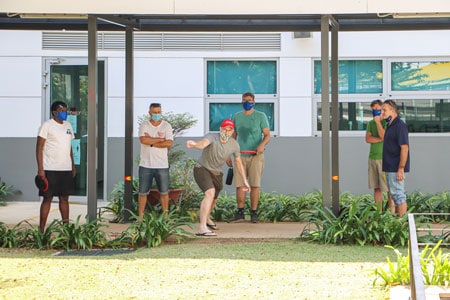
We are lucky that the administration at ISPP understands the importance of wellness for all, students, teachers, and the wider community. As we always say, “You need to put on your oxygen mask first before assisting others”, self-care helps you care for others.
One of the most successful things that we have been doing for all staff during professional development (PD) days is an hour of wellness. Just in the middle of the day, before our lunch break, staff participate in different activities for 45 minutes or an hour, depending on the activity.
This is possible thanks to the generosity of many teachers, teaching assistants (TAs) and staff who offer a range of activities that include physical and sporty activities, musical, mindfulness, art, cooking, games… We can’t be more thankful to these individuals for offering their time and knowledge to others. At the same time, we recognise that when you give you receive, and most of the time, you feel great by sharing, interacting with others, and especially freeing your mind. This helps us to get through long sessions of meetings or sitting downtime during the PD.
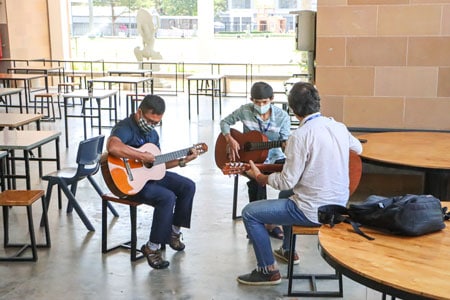
We understand that some people might need space and time for themselves, so some activities are more related to individual pursuits than others. Some people prefer to go to the workout room, swim, walk, and maybe talk to others, or simply dive into a good book for an hour, something they would never contemplate doing during a regular school day.
Allowing time to care for ourselves is not selfish; it’s necessary. There is still a lot to do, but we are slowly starting to understand it and adding it to our busy lives.
We believe that as human beings, we need to interact with others. We don’t have the same opportunities during online school, so we recently have started an idea to connect with others, encourage others, lift each other up, and inspire others by sharing different activities that we are up to during our free time.
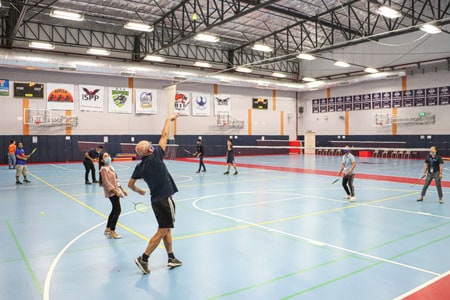
Using a platform called Padlet, teachers and staff add an idea that makes them feel good and inspires others to do something similar or possibly get an idea. There is also a possibility to comment on each other and be grateful for what they have shared.
I have personally used social media and the Padlet, with the hashtag #ISPPinspires, to share a few things that help my body and mind smile and get me through the days and weeks. This has a broader impact, as it can inspire, or not, people that might not be at ISPP, or even in Cambodia, but might have to go through the same process of stressed overwhelmed lives.
We understand that everyone has a different story, and we all have our own struggles and happy moments. Reflecting on those experiences, acknowledging them, and being grateful for what we have might help us get through this pandemic and challenging times.
Be Well.
Leticia Cariño | IB PYP Physical Education Teacher
